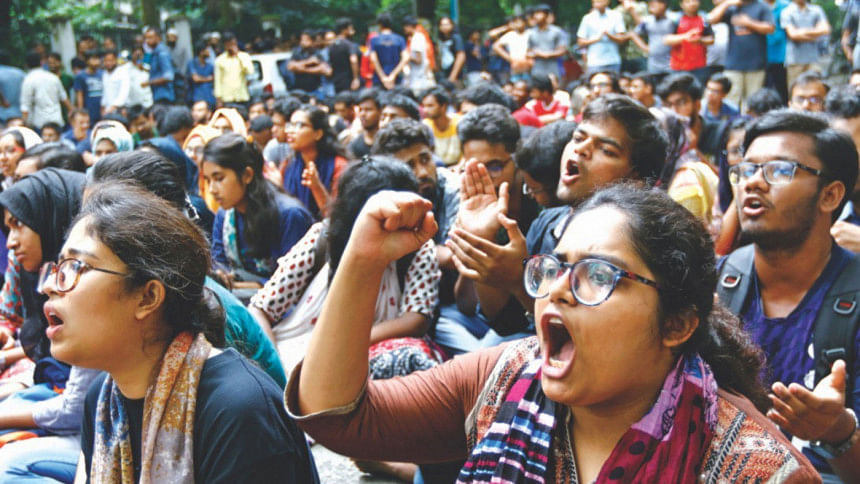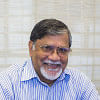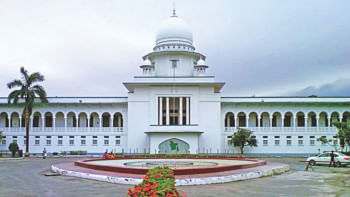The politics of anti-politics: Corruption, democracy and the universities

I am fortunate, indeed blessed, to have been a part of Dhaka University (DU) as a student and a teacher from 1967-75. I had received a superb education from talented and dedicated professors, and I was inspired by the moral values they represented, the enlightenment principles they professed, and the individual dignity and social courtesies they exemplified. Moreover, DU provided an enabling environment for us to develop qualities of courage, integrity, patriotism and intellectual eagerness.
I was a student here when we experienced our thrilling emergence as an independent country. On December 16, 1971, as I re-entered Dhaka after seven months, with other Freedom Fighters from Sector 2, we felt we had "done it". Fifty years later, we ask, what have we really done? That question haunts us.
This is not the place for an elaborate stock-taking. But apparently, the ideals we fought for—the democracy we had imagined, the socialism we had envisioned, the secularism that we had embraced, and even the issue of national identity we had thought we had settled—all appear to have been a bit rudely shaken later. Even our alma mater gradually began to lose its lustre, and sometimes its way.
There are various causes, and many excuses, that may be offered as explanations. But one of the biggest challenges which we did not understand, confront or defeat was corruption. It did not remain a set of discrete criminal acts; it gradually became a way of life that engulfed us, practiced openly and boldly.
There is no better metaphor for the state of corruption and its subversion of democracy in the country than the photograph of a female journalist (of Prothom Alo) peering out plaintively from behind the grilles of a prison van because she had bravely exposed the fraud and incompetence in the Health Ministry.
This essay is a cursory glance at corruption's impact on politics and higher education.
***
Corruption has typically involved extracting payments in exchange for services provided. This is a rather restrictive and legalistic definition since it only refers to official and institutional malfeasance for personal gain.
Historically, the notion has been broader. For example, Socrates was accused of "corrupting the youth", St. Paul warned the Corinthians of the "corruption of the flesh", and literature is replete with references to the "corruption of the soul". It is also apparent that corruption has become more complex, innovative and more organically rooted in society. It may encompass personal, cultural and moral components, and include acts that may be destructive of the public good.
The notion of corruption and politics has always been considered to be intimately related and co-dependent. Hence, the idea of "politics" is considered to be synonymous with cunning, hypocrisy and opportunism. The phrase "dirty politics" is considered an exercise in redundancy, a "crooked politician" a tautology. Thus, it is frequently argued that corruption can be better contained in an autocratic regime—through "strong man" tactics which are simple and direct—than under arrangements that allow the pursuit of open politics where the effort becomes messy and futile.
But this relationship that is hypothesised is not only unfortunate, it is mischievous. First, it is clear that the freest and most democratic countries in the world (according to Freedom Watch) are also the least corrupt (according to Transparency International), and that free speech, competitive elections, constitutional guarantees, institutional checks and balances, and an informed and engaged citizenry remain the best antidote to corruption. Second, an attack on politics inevitably becomes an assault on democracy. It may be possible to have politics without democracy, but not democracy without politics. Authoritarian efforts not only cost freedoms and rights, they are also counter-productive in terms of controlling corruption.
***
Unfortunately, corruption may affect politics with irregularities in campaigns, balloting and vote counts. It may erode the institutional salience and moral authority of the parliament. It may problematise the rule of law, a fundamental right of citizens in a democracy.
Even more unfortunately, the corruption of politics and the concomitant loss of democratic values can also happen in the universities, where it is least expected. How can the widely reported "scandals" which include allegations about teachers who allegedly plagiarise, disregard their teaching responsibilities while seeking "consultancies" and additional teaching assignments elsewhere, and ignore research and professional development to pursue party loyalties for material benefit; VCs who do not attend office, hire people for personal and partisan advantage, arrange "pay-offs" for student leaders out of development funds, threaten legal action against critics, and face various investigations for procedural and ethical transgressions; students who gang-rape a woman in a dorm, or torture a fellow student to death for a Facebook post, or demonstrate arbitrary, often cruel, dominance in residential halls, or provide muscular support for party leaders in exchange for various rewards and favours—how can these signs of moral chaos not reflect, or affect, the democratic (dis)temper of our times?
Didn't such embarrassments become more manifest during the time when elections to student bodies were not even held for several decades, and a stultifying atmosphere of cynicism and fear was inflicted on campus by successive regimes?
Didn't the students create the context—and make sacrifices in blood, sweat and tears—to pave the way for the country's independence and the ideals it fostered? Didn't the debates and discussions, the interrogations and contestations, the frisson of ideas and the jostling for political space, the wall magazines and pamphlets, the cultural platforms, the study circles and the student organisations pursuing diverse ideological and national goals help to create tolerance and broad-mindedness, an engagement with public issues, and a respect for the democratic process? Isn't the right to think, question and challenge part of education? Isn't taking away that right tantamount to an attack on democracy as well?
Is it merely coincidental that the most glorious periods of Dhaka University's history coincided with the period of its most intense political activism, and its most awkward years (including progressively lower rankings in international comparisons) overlap with authoritarian efforts at establishing control?
If that lofty tradition is now perverted by the politics of anti-politics (even leading to talk of "banning politics in universities"), what does it portend for the future of democracy in Bangladesh?
Doesn't this uncomfortable situation provoke questions about whether the governmental/bureaucratic classes still retain a stake in our public universities? Does the quality or reputation of these universities even matter to them since their own children will be sent to pricey private universities and/or abroad for higher studies?
Similarly, do the members of the corporate/financial elite have any interest in research and scholarship in our universities? Or do they narrowly focus on the instrumental and utilitarian aspects of education to provide skilled manpower as grist for their economic mill?
This unconcern is nested within a wider structure of the devaluation of education itself. Previously, education was prized because it provided us with professional identity, upward mobility, and social respect. Those "middle-class" values and inspirations are becoming increasingly irrelevant in a psycho-social environment where wealth has become the dominant marker of status and power, and its pursuit the overriding obsession. This is perfectly compatible with the selfishness inherent in a de-politicised culture.
The right to investigate, contest and propose alternative ideas, explanations and policies based on logic, evidence and moral clarity, the right to vote, speak or organise without fear, and the right to seek an education that enlightens—rather than one that merely imparts skills—can only come through an open, inclusive, tolerant environment which not only allows but also encourages politics in the best sense of the term. There is nothing that autocrats fear more than free speech and accountability. And it is the universities that nurture that sentiment, practice and courage.
Those who seek to de-legitimise politics today, perhaps unknowingly, disregard the foundational values, historical compulsions and constitutional guarantees that define this country. The universities were in the forefront of the struggle through which our democratic ideals were pursued. We must inspire them to regain that mantle. Otherwise, education will suffer, democracy will suffocate and, without those challenges, corruption will triumph.
(The article is partially based on a talk at DU in May 2021.)
Ahrar Ahmad is Director General of Gyantapas Abdur Razzaq Foundation, Dhaka. Previously, he served as Professor Emeritus at the Black Hills State University, South Dakota, USA.
Email: [email protected]

 For all latest news, follow The Daily Star's Google News channel.
For all latest news, follow The Daily Star's Google News channel. 



Comments